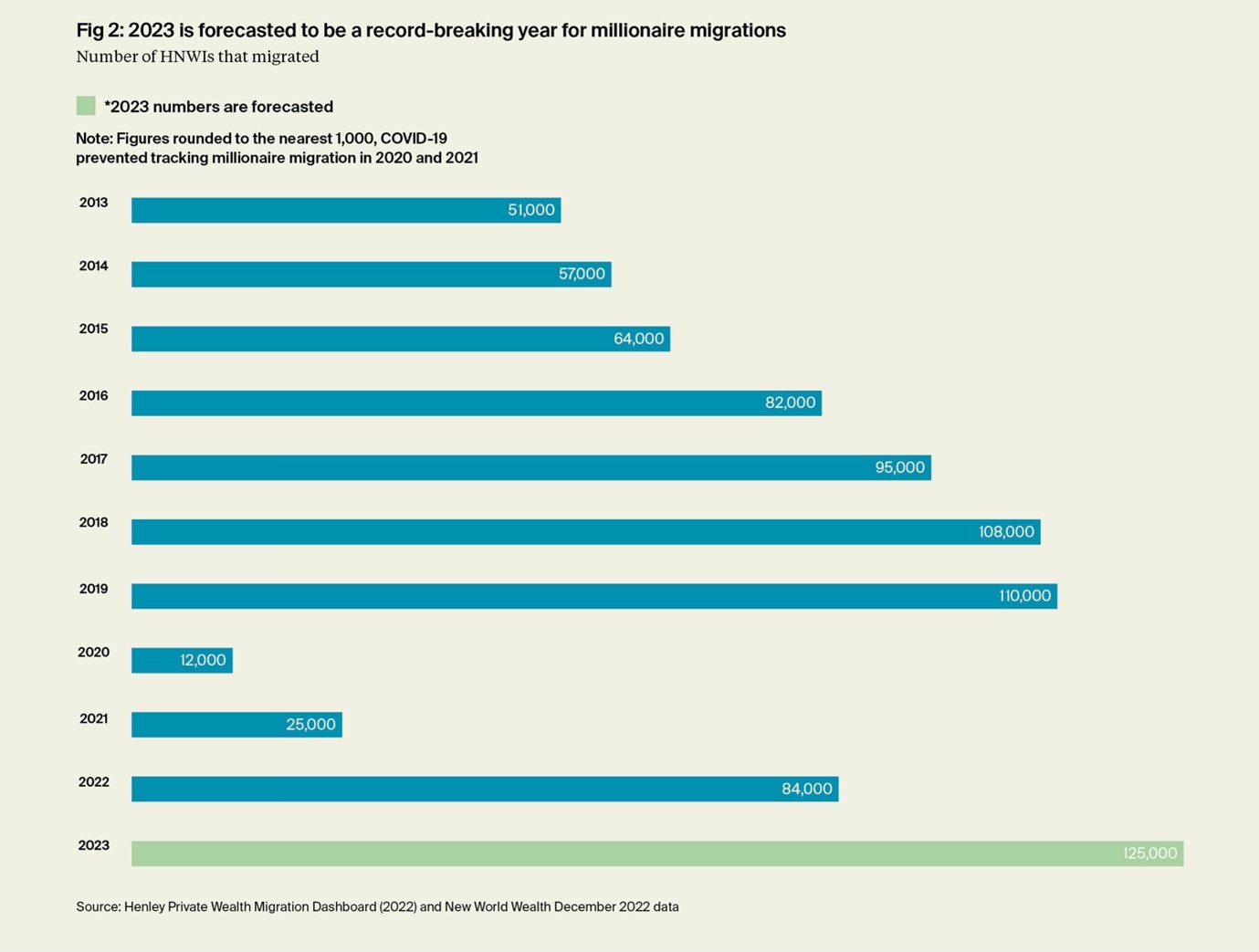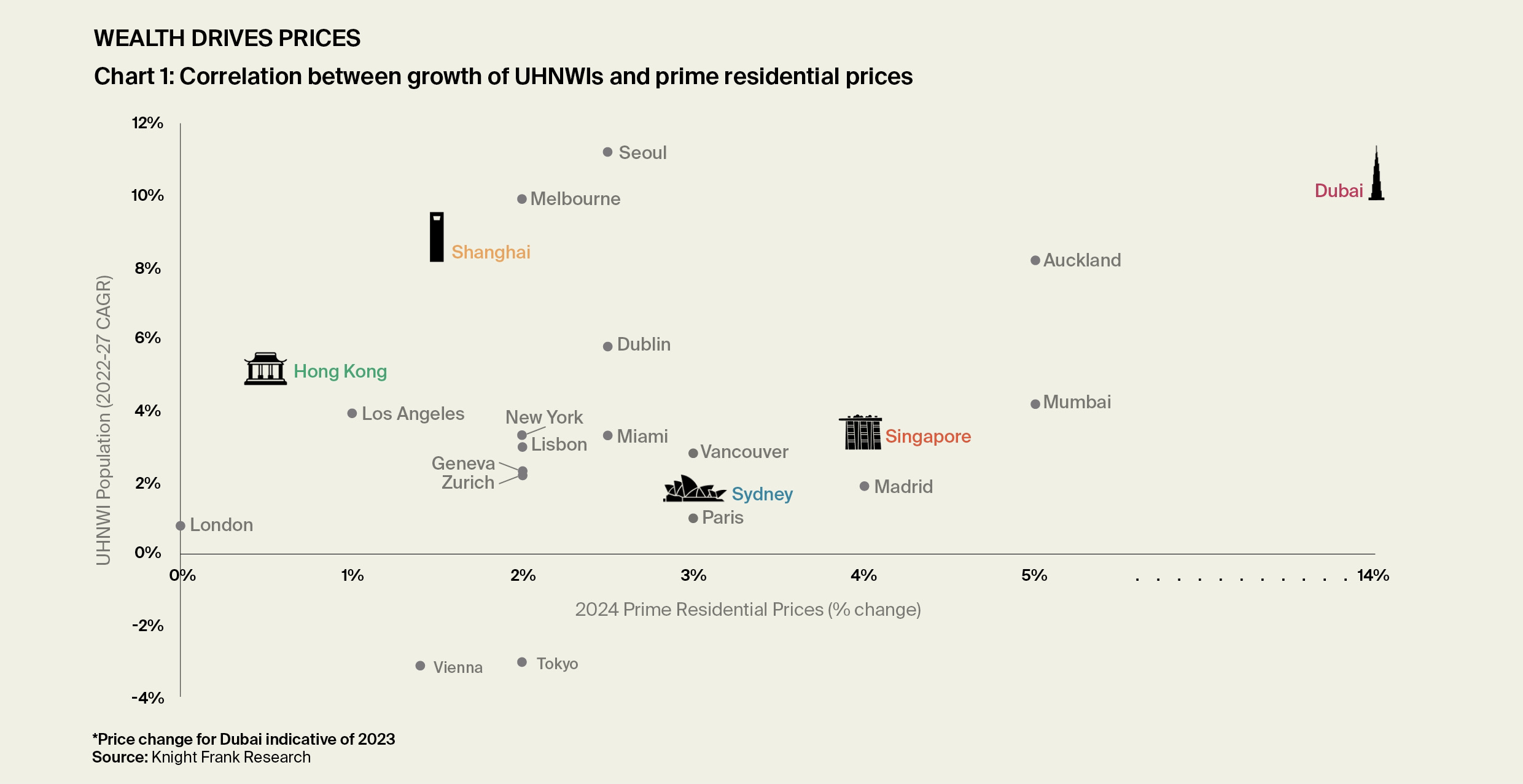The evolving landscape of millionaire migration
In the search for a new destination, millionaires typically examine several factors that influence their decisions.
3 minutes to read
It is widely recognised that wealth creation is a global phenomenon, and this wealth corridor makes it an international business for governments worldwide to entice capital and talent to their shores.
In recent years, a rising number of wealthy individuals have purchased property and established residency in other nations. Millionaire migration has risen by almost 116% from 2013 to 2019, according to data from Henley & Partners, and 2023 is projected to see a record 125,000 transnational millionaires moving to a new destination (see chart below).

Given the ongoing socio-economic fluctuations worldwide, it is observed that the countries of origin for these affluent individuals may not always offer the most stable environment for wealth preservation. As a result, there has been a notable uptick in millionaires choosing to relocate as a strategic measure to safeguard their legacies and ensure the long-term sustainability of their family's wealth.
When considering a new destination, these millionaires typically assess a range of factors that impact their decision-making process:
Quality of life: Parameters such as healthcare quality, education systems, safety measures, and cultural and recreational opportunities play a pivotal role in the evaluation of potential destinations.
Political stability: Wealthy individuals seek destinations with stable political environments that minimise the risk of sudden policy changes or social upheaval that could negatively impact their assets and businesses.
Economic and tax environment: A favourable tax regime is a main draw for wealthy individuals. Countries with low personal income tax rates, minimal capital gains taxes, and attractive incentives for entrepreneurs and investors are often preferred.
Business and investment opportunities: Locations with robust economies, access to markets, and a friendly business environment are appealing to individuals looking to invest, start businesses, or expand existing ventures.
Privacy and security: Wealthy individuals often value privacy and security. Countries with robust data protection and personal security legal frameworks can be appealing.
Traditionally, affluent migrants have gravitated towards nations offering strong socio-political conditions, encompassing countries such as the United States, Canada, and the United Kingdom. Nevertheless, the landscape of this migration has shifted due to changing geopolitical trends.
We have witnessed a shift in wealth migration toward regions that provide several emerging factors that have also contributed to this transition:
Cultural and lifestyle fit: The local culture, lifestyle, and social environment which aligns with the preferences of wealthy individuals and their families.
Real estate opportunities: The availability of luxury real estate, whether for investment or personal use, influences the decision.
Environmental considerations: Some wealthy individuals prioritise destinations firmly committed to environmental sustainability and conservation.
Time zone and global reach: Proximity to major business centres and time zones that facilitate communication with global partners can be essential for those with international business interests.
The influx of the affluent into certain major cities has been notably substantial, and this trend is anticipated to continue. Concurrently, residential property prices have experienced a parallel surge (See chart below).

In our Rise of the Super Wealth Hubs Series, we delve into several of these markets to uncover the factors that reinforced their Wealth Hub statuses and examine the dynamics of the residential real estate market.
For more insights of the Rise of The Super Wealth Hub Series and to delve into specific cities, please click here.